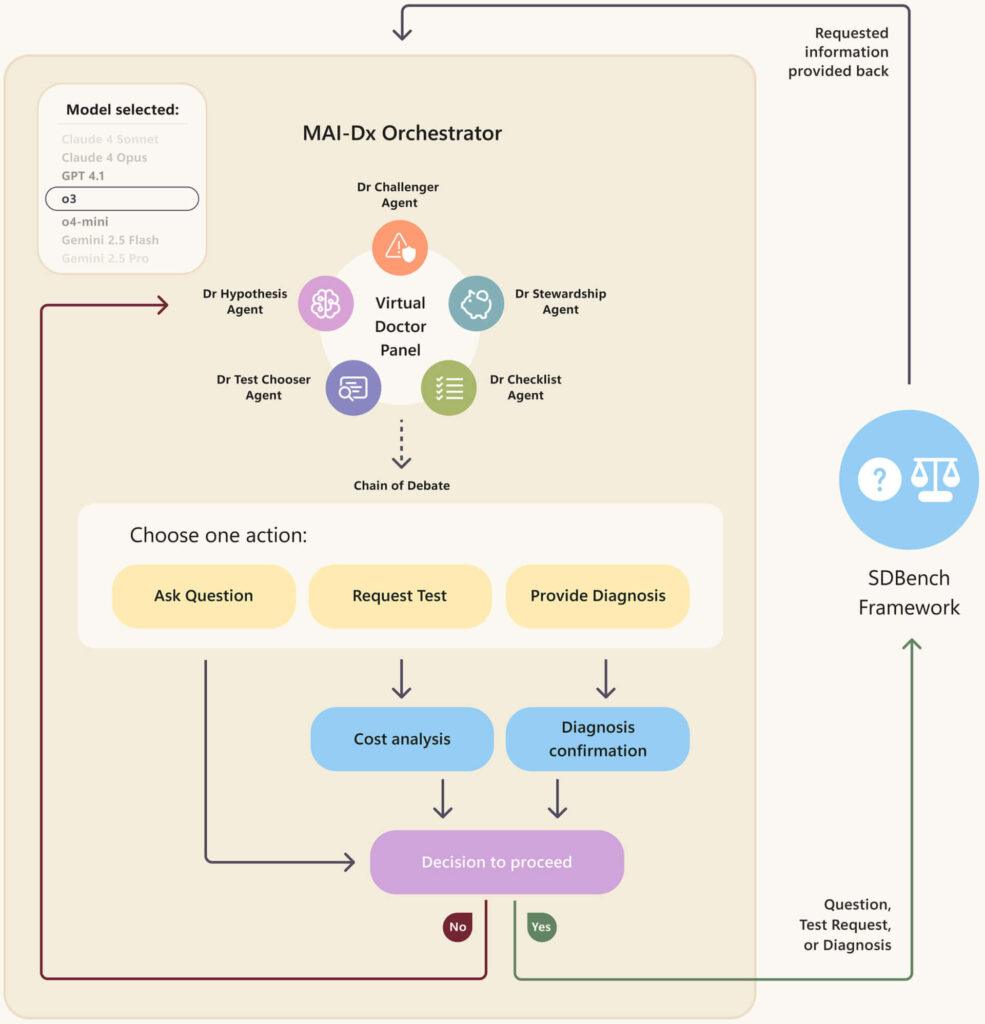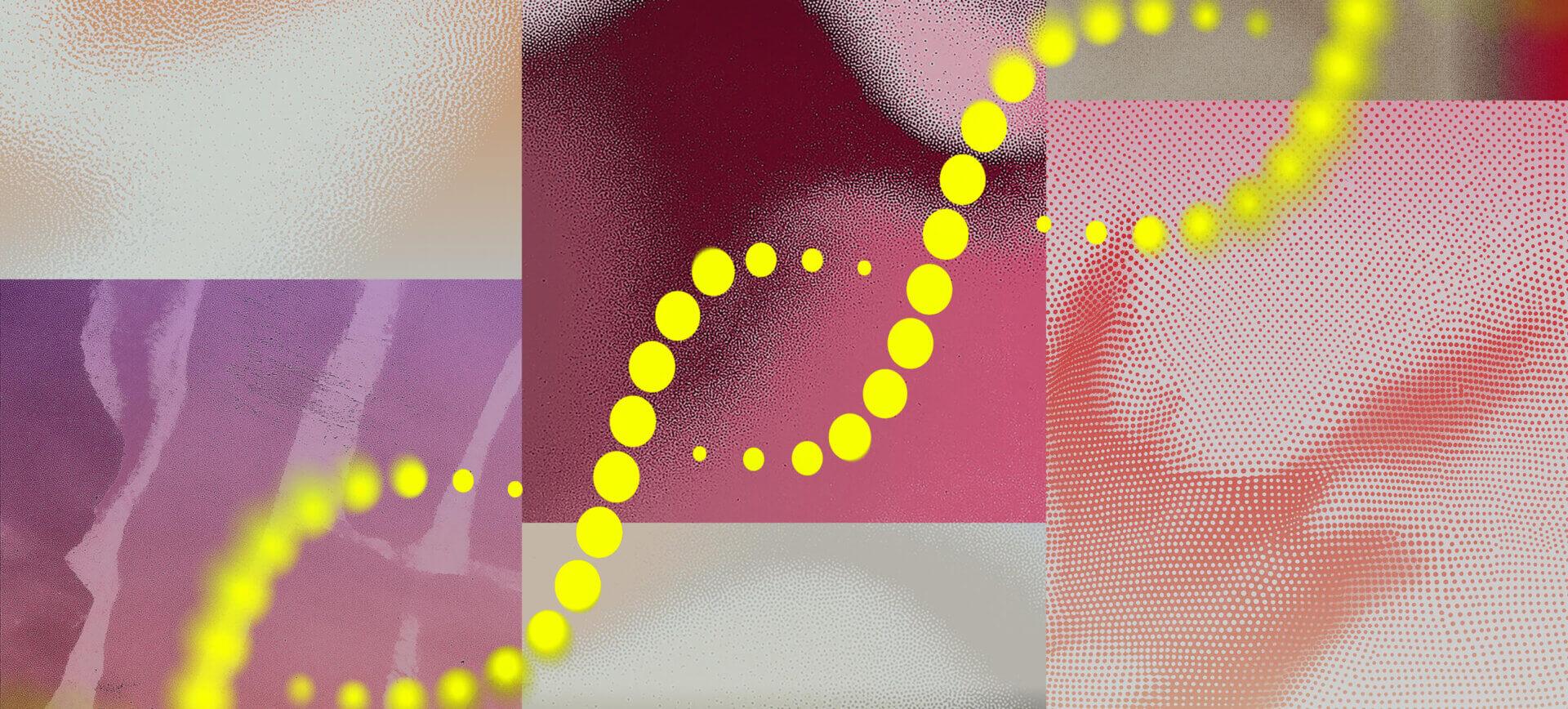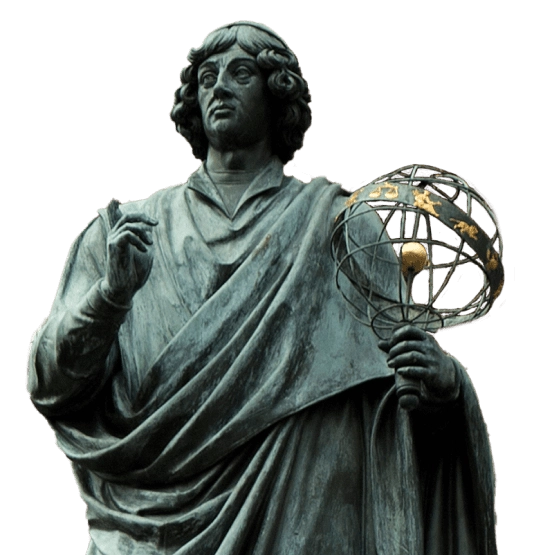The Microsoft AI research team has presented groundbreaking results on the use of artificial intelligence in diagnosing the most difficult medical cases. The Microsoft AI Diagnostic Orchestrator (MAI-DxO) system developed by Microsoft achieved an impressive 85% accuracy in recognizing cases described in the prestigious New England Journal of Medicine (NEJM). That is four times higher than the average effectiveness of a group of 21 practicing physicians from the US and the UK with 5 to 20 years of clinical experience.
MAI-DxO is an innovative system that imitates a virtual panel of medical experts, analyzing cases step by step – from gathering medical history to ordering tests and making a final diagnosis. AI not only demonstrates higher accuracy, but also selects less costly diagnostic paths, which could revolutionize the way healthcare is managed.
The study also compared the effectiveness of various language models, such as GPT (OpenAI), Llama, Claude, Gemini, and DeepSeek. In all cases, the use of MAI-DxO as a “coordinator” significantly improved diagnostic results.

MAI-Dx Orchestrator turns any language model into a virtual panel of clinicians: it can ask follow-up questions, order tests, or make a diagnosis, and then perform cost control and verify its own reasoning before deciding to continue. Source: https://microsoft.ai/
Microsoft’s artificial intelligence also passed one of the most demanding exams for doctors – the USMLE (United States Medical Licensing Examination) – with a near-perfect score. This proves that AI is already capable of competing with human specialists in terms of knowledge and clinical decision-making.
Microsoft AI Diagnostic Orchestrator (MAI-DxO) is designed to emulate a virtual panel of doctors with different diagnostic approaches who work together to solve a diagnostic case. The tool uses leading AI models, including GPT, Llama, Claude, Gemini, Grok, and DeepSeek.
Will doctors be replaced by algorithms? According to the creators of MAI-DxO, no. The role of a doctor goes far beyond simply making a diagnosis. The future of medicine lies in close cooperation between humans and machines. Doctors will not only gain a powerful tool to support their daily work, but also the ability to personalize therapy and detect health risks earlier. Patients, in turn, will be able to make more informed health decisions using available technologies.
Microsoft AI declares that before such systems are implemented on a large scale, they must undergo rigorous testing in real clinical conditions. Only then will it be possible to ensure their reliability, safety, and effectiveness. One thing is certain—a new era of medicine is fast approaching, in which the line between human intuition and machine precision will become increasingly blurred.
Source: Microsoft.ai, RMF24.






